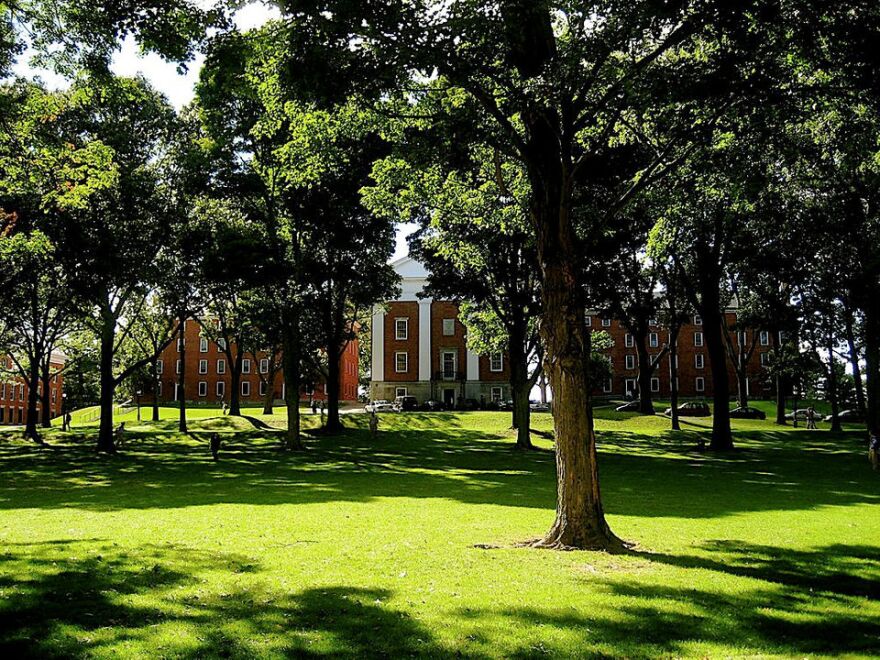As the new coronavirus continues to spread across the country, Amherst College is telling students not to come back after spring break. Other nearby schools, including Smith College in Northampton and Mount Holyoke College in South Hadley, followed suit.
There have been no cases reported in Massachusetts' Hampshire County, where Amherst College is located. But President Biddy Martin said when discussing what to do about COVID-19, school officials had a goal in mind.
"Given the rapid spread of the virus in the United States, how we can keep our students, our community and the larger community out here in western Massachusetts as safe as possible," Martin said.
She said the college considered less drastic measures, like tracking travel and discouraging students and faculty from going away for spring break.
"In the end, we decided this was the only option that made us feel comfortable that we have a good chance, a better chance of meeting that goal," Martin said.
Martin said she expects a few hundred students who are unable to return home, or don't have a home to go back to, will stay on campus. The college said students can apply to stay if they cannot leave for "a variety of life or logistical circumstances."
Martin said she anticipates all employees will stay on the payroll — and it will actually be a very busy time for IT staff. They're working with faculty members on how to finish up the semester using what the college is calling "remote learning."
Crash courses for professors
Jagu Jagannathan, who chairs the physics and astronomy department, said he supports the college's decision from a public health perspective. But he said he'll have to make big changes to how he teaches.
"I'm an old-fashioned guy. I use a blackboard and chalk. The blackboard I use in the classroom is 30 feet wide, and I go from end-to-end through the lecture," Jagannathan said.
And now, instead:
"I'll be writing on my iPad and the camera will be on the iPad, or it will be identically streamed, or something like that," he said. "Then from time to time I'll have to look up and do some talking."
Jagannathan said he'll practice with the technology during spring break, to make sure he's ready to go when the virtual classes start.
As faculty members figure out what the rest of the semester will look like academically, some students are questioning the decision. Stephen Clapp is a senior, majoring in economics.
"If student well-being is the priority, then sending us back home where a lot of us come from, places...like New York and Seattle, places that have a lot of confirmed cases, I don't think that makes much sense," said Clapp, who is from New Jersey.
Others said they understand the public health rationale, but are not looking forward to classes via video-conference.
"The call breaking up, not working as well, losing connection," said sophomore Gabriel Echarte. "Also, not everyone has access to a computer and internet. That's another problem we're having."
Shreya Venkat, a junior biology major, said the decision makes things difficult, socially.
"We were expecting to stay a full semester here and all of a sudden we're told to say goodbye to our friends," Venkat said. "It's also difficult because a lot of seniors are graduating and we might not see them after they graduate."
Martin, the college president, said it's "devastating" for the senior class, who likely will have to stay goodbye to their friends and have their last semester interrupted. Martin was cautious when asked if there's a chance students might be able to return to campus before the semester's end.
"It doesn't, at the moment, seem realistically to me to think that they'll be able to come back, but I am hoping against hope that they will," Martin said.
Meanwhile, up the road, the much larger UMass Amherst said on-campus classes will continue as normal. The school is urging students not to travel internationally during spring break.
New England Public Radio's Karen Brown contributed to this report.



